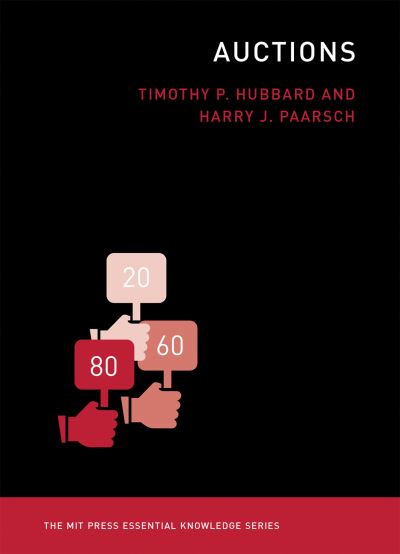
How auctions work, in theory and practice, with clear explanations and real-world examples that range from government procurement to eBay.
Although it is among the oldest of market institutions, the auction is ubiquitous in today's economy, used for everything from government procurement to selling advertising on the Internet to course assignment at MIT's Sloan School. And yet beyond the small number of economists who specialize in the subject, few people understand how auctions really work. This concise, accessible, and engaging book explains both the theory and the practice of auctions. It describes the main auction formats and pricing rules, develops a simple model to explain bidder behavior, and provides a range of real-world examples.
The authors explain what constitutes an auction and how auctions can be modeled as games of asymmetric information-that is, games in which some players know something that other players do not. They characterize behavior in these strategic situations and maintain a focus on the real world by illustrating their discussions with examples that include not just auctions held by eBay and Sotheby's, but those used by Google, the U.S. Treasury, TaskRabbit, and charities. Readers will begin to understand how economists model auctions and how the rules of the auction shape bidder incentives. They will appreciate the role auctions play in our modern economy and understand why these selling mechanisms are so resilient.
| ISBN: | 9780262528535 |
| Publication date: | 19th February 2016 |
| Author: | Timothy P Hubbard, Harry J Paarsch |
| Publisher: | The MIT Press |
| Format: | Paperback |
| Pagination: | 264 pages |
| Series: | The MIT Press Essential Knowledge Series |
| Genres: |
Microeconomics Economic history |